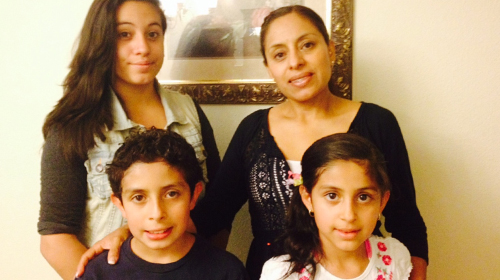
On the evening of June 28, 2012, Claudia Valdez called the police for help. An argument with her husband at the time had turned physical and she feared for her safety and that of her three young children. She ran to her neighbor’s house with her kids in tow and asked for help. Police arrived and ended up arresting Claudia, who is an undocumented immigrant, on a misdemeanor domestic violence charge which was dismissed soon after.
The Arapahoe County Sheriff’s Office, however, refused to release Claudia. Instead, she was kept in jail because Immigration and Customs Enforcement (“ICE”), a division of the Department of Homeland Security, had requested that the sheriff hold Claudia in detention while it investigated her immigration status.
The sheriff’s office, like most others in Colorado at the time, chose to comply with the federal government’s request, imprisoning Claudia for three additional days without a warrant and without probable cause. Those were three anguished days for Claudia who had never had a run-in with the law apart from minor traffic offenses, and who never dreamed that calling the police for help would land her in a cold jail cell apart from her children. Still, years after the incident she does not believe she can trust the police.
But today she received some justice, though bittersweet. The Arapahoe County Sheriff’s Office and county commissioners agreed to pay Claudia $30,000 in an after receiving a draft complaint from the ACLU of Colorado concerning the ICE hold against her. However, Claudia still faces the possibility of deportation and separation from her family.
Since the incident, at least , including Arapahoe, have joined more than 100 localities and two states around the country in a virtual revolt against the use of immigration detainers and the practice of prolonging an individual's detention so that ICE can investigate his or her immigration status. The Aurora Detention Center in central Colorado now also rejects immigration detainers. But a few years ago, their entanglement with federal immigration cost another woman, Yadira Castillo far more than unjust jail time.
Yadira Castillo was detained by police in 2010 because she was driving out of the parking lot at work late one night with her headlights off momentarily so that she wouldn't disturb people who lived in the apartments bordering the lot. She gave police identification but couldn't produce a drivers' license so she was handcuffed and taken to the Aurora Detention Center.
At the time, Yadira, who is undocumented and a mother of two, was pregnant.
At the detention center, Yadira was strip-searched, interrogated, and was not allowed to call her husband. Yadira was told she was being held on an immigration hold. She was released two days later after ICE lifted the hold. A week after her release, Yadira's doctor told her he could no longer hear her baby's heartbeat. To this day, she believes her miscarriage was caused by the fear, extreme stress, and discomfort she experienced while in detention. In the end, she was cited for driving without a valid driver's license. Both women received a chilling message from their interactions with law enforcement. Avoid contact with police at all costs or face jail time and perhaps deportation.
To do their job and protect communities, law enforcement needs people from all walks of life to report crimes, to act as witnesses, and to reach out when public safety issues arise. In other words, law enforcement should encourage trust, not contribute to a culture of fear and suspicion among immigrants.
Thankfully, many sheriffs in Colorado are starting to agree and are now rejecting ICE’s detainer requests. The change is unfortunately too late to prevent the harm and loss that fell upon Claudia Vazquez and Yadira Castillo. But if this trend continues in Colorado and around the country, many men and women will learn to trust rather than fear their local police. And that will make us all safer.
Learn more about immigration enforcement and other civil liberty issues: Sign up for breaking news alerts, , and .

